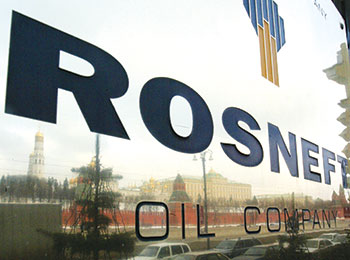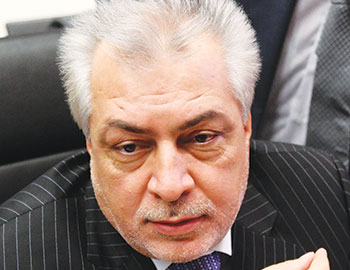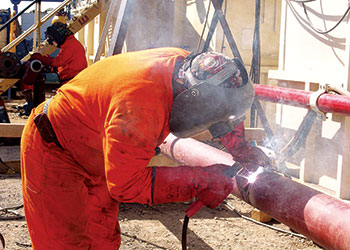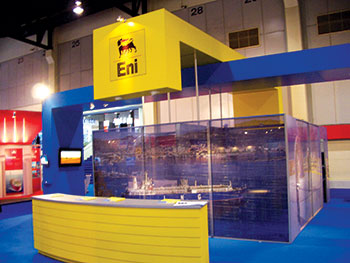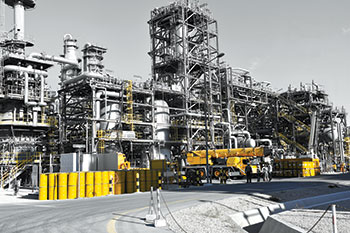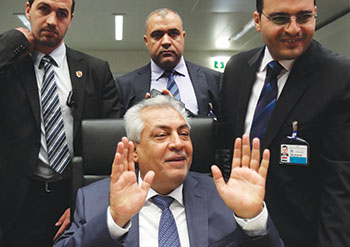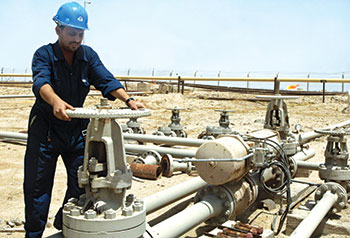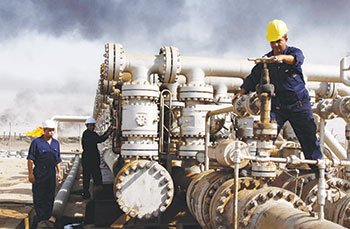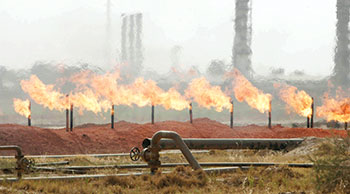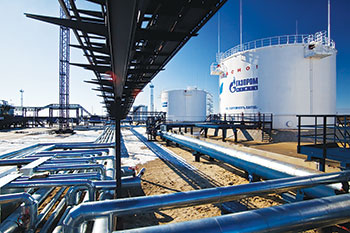
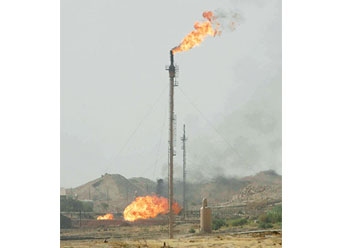 Iraq is one of the worst offenders when it comes to flaring
Iraq is one of the worst offenders when it comes to flaring
In line with an MoU, Orion is proposing to build the facilities to process all the associated gas produced at the 50,000 barrel per day Bin Umar field, providing the dry gas to the ministry for free and taking a percentage of gas liquids as payment
Baghdad's inflexibility on commercial terms is threatening to stymie a plan by Texas-based firm Orion Gas Pro to eliminate gas flaring at the giant Nahr bin Umar oil field at little cost to Iraq, belying the oil ministry’s ambitious target of ending gas flaring by 2021.
Opec’s second-largest producer is one of the worst offenders when it comes to flaring, burning 1.53 billion cubic feet per day of associated gas — or 55 per cent of national output — in March, despite the high environmental cost and Iraq’s chronic power shortages. A lack of investment has prevented Baghdad from building the infrastructure needed and from getting even close to its target of ending gas flaring.
In line with a memorandum of understanding (MoU) signed in January, Orion is proposing to build the facilities to process all the associated gas produced at the 50,000 barrel per day Bin Umar field, providing the dry gas to the ministry for free and taking a percentage of gas liquids as payment. Currently, the field is producing more than 100 million cubic feet per day, four times as much as the ministry has claimed, all of it flared.
"For Iraq, it’s fantastic. They’re getting the majority of the plant revenue and they don’t have to invest a penny," Orion’s vice president, Ryan Manicom, says. The contract would run for 10 years, and the firm would provide all the $200 million to $300 million in financing that the project is likely to cost, he explains.
The scheme aims to raise gas production to 150 mmcfd from the field, which has estimated reserves of 12 trillion cubic feet and oil reserves of more than 6 billion barrels, according to consultancy Wood Mackenzie. It would also allow crude output to rise from sour wells that have been shut in, with the plant capable of handling the sulphur, although Orion is solely focused on the gas.
But while the benefits to Iraq of such a project moving ahead seem clear, the negotiations have been going on for at least nine months and the ministry is pushing for a deal that would be difficult for Orion commercially. "We’ve got a lot of time and money invested in this … But at the end of the day, it will come down to the economics needed for this kind of investment in Iraq. And if we can’t get there, we’ll move on," Manicom says.
Bin Umar has been earmarked as an essential part of the Integrated South Project (ISP), a vast scheme that supports lifting output from Iraq’s giant southern reservoirs by injecting them with up to 7.5 mbpd of water, and expanding crude export capacity. ExxonMobil and state-run China National Petroleum Corp. (CNPC) have been linked to the project, which could see them develop the field — raising production to as much as 400,000 bpd — as a source of financing.
Manicom insists his company is not competing to develop Bin Umar’s gas reserves. The flaring would continue for a number of years even if the Integrated South Project goes ahead. "We’re thinking, ‘let’s try to do something today while we’re sorting out the long term. Let’s put out the flare and generate significant economics to Iraq during that time frame, instead of wasting it,’" he says.
Exxon has been negotiating the water injection scheme for around three years. But like other upstream projects in Iraq, developments are continually being held up by the ministry’s insistence on terms that its foreign partners cannot accept.










































































